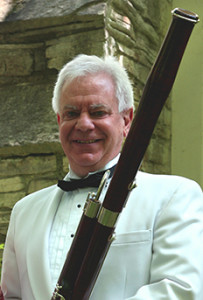 Last week, Nick Freimuth from WBDK was at the Unitarian Fellowship in Ephraim before one of our concerts and interviewed a number of us involved with Midsummer’s Music. The segments were brief, so we each only got a few short questions in our individual on-air moments. When it was my turn, Nick asked me something I was not quite prepared to answer. He said, “You have been with Midsummer’s Music from the beginning – 28 years ago. What has surprised you the most in all that time?” That seemed like a momentous question. With so many experiences to sift through, how could I give him a coherent answer right there on the spot? I was afraid I was going to freeze up and stutter for the next 90 seconds. Then, all of a sudden, it came to me. I said, “More than once I have had people come up to me and thank me for what we do – and then say – ‘You have changed my life!’” I told him that we have often received heartfelt thanks expressed in different ways, but, “you have changed my life?” Especially the first time, that was initially hard to process. Once having done so, it became rather humbling to realize how deeply someone had allowed our music and our performance to penetrate their inner being. I could see that Nick was quite moved by this story. He wasn’t prepared for such a significant answer to his question and it showed. And to tell you the truth, I still kind of get goose bumps when I retell this incident.
Last week, Nick Freimuth from WBDK was at the Unitarian Fellowship in Ephraim before one of our concerts and interviewed a number of us involved with Midsummer’s Music. The segments were brief, so we each only got a few short questions in our individual on-air moments. When it was my turn, Nick asked me something I was not quite prepared to answer. He said, “You have been with Midsummer’s Music from the beginning – 28 years ago. What has surprised you the most in all that time?” That seemed like a momentous question. With so many experiences to sift through, how could I give him a coherent answer right there on the spot? I was afraid I was going to freeze up and stutter for the next 90 seconds. Then, all of a sudden, it came to me. I said, “More than once I have had people come up to me and thank me for what we do – and then say – ‘You have changed my life!’” I told him that we have often received heartfelt thanks expressed in different ways, but, “you have changed my life?” Especially the first time, that was initially hard to process. Once having done so, it became rather humbling to realize how deeply someone had allowed our music and our performance to penetrate their inner being. I could see that Nick was quite moved by this story. He wasn’t prepared for such a significant answer to his question and it showed. And to tell you the truth, I still kind of get goose bumps when I retell this incident.
Every year Jean and I get thank you notes from various audience members thanking us for bringing such good music to Door County. These notes often stress how important these concerts are to the writer. Some are so touching that I have kept them together in a collection. I can’t bear to throw them away. I also get programming suggestions, which are interesting and sometimes have some great ideas that we put to good use. In fact, last week I got another such suggestion, which would have been fairly routine – except it was sent anonymously! It was not at all provocative and certainly not insulting, so I’m not sure why the clandestine approach. Anon. suggested that I ask our players for the works they most wanted to perform. In truth, they often give me suggestions, which I welcome and use.
While I always enjoy hearing from audience members, and often am deeply touched by the sincere appreciation expressed, I was not prepared for the missive I received by email yesterday. It was from Elmer Lewis. Elmer and his wife, Ann, have attended our concerts quite frequently, but not much recently because of Ann’s illness a few years ago and slow recovery. We haven’t seen them at all this year, and I was recently wondering about them when Elmer’s email showed up.
Elmer and Ann are wonderful people, but we met in a rather strange way. Jean and I live on a mile-long private driveway right at the end of the peninsula near Gills Rock. There are three homes on this road including ours. One day, years ago, we had just started to enter our drive from Highway 42 when we saw a couple in the distance walking toward. Since this is a private lane, we usually stop and converse briefly with anyone we don’t recognize. It’s a way our neighbors and we look out for each other. Well, these highly suspicious interlopers turned out to be an engineering professor from Northwestern University and his lovely wife. They were talking a long walk from their home on the other side of Wisconsin Bay, and having thrashed their way through some dense woods, they were enjoying the prospects of returning home via an easier route. Seeing that they were perfectly safe and actually quite nice, we invited them over for a glass of wine. They returned in a few hours, and we learned that we were not only our neighbors in Gills Rock, but also that we were also neighbors in Evanston. We have been friends ever since.
Elmer has written many engineering texts used in college courses all over the country. After he learned that I had an idea for a book, he encouraged me by giving me a copy of a new book he had written about the development of engineering written for the layperson, especially would-be college students and their parents. However, I was not prepared for the side of Elmer that was revealed as soon as I opened the attachment to his email. I decided I had to share this with as many people as possible because it is a Midsummer’s Music thank you in a class by itself. And, it shows very beautifully the other side of Elmer’s intellectual equation.
MIDSUMMER’S MUSIC
E. Lewis
They arrive from Madison, Milwaukee and further afar.
The stellar musicians of midsummer they are.
From duets to octets chamber works are their forte.
Across Door County at varied venues they stay,
and in galleries, churches, halls and homes they play.
Programs of Mozart, Mendelssohn, Beethoven and Brahms
and little-known jewels of forgotten charms,
all put in context by Jim Berkenstock’s opening remarks.
So much talent clustered in so few square feet,
as a hush falls over the chamber and soon the music starts.
Whether strings or winds or piano in combination,
the music enchants with harmonious blends.
Each bow on the strings, each breath to the winds,
each chord on the keys, unite in esthetic pursuit;
a violin communes with the cello, the bassoon with the flute.
When intermission comes, and day is nearly done,
outside there may be a view of the setting sun.
And after the finale brings the concert to end,
performers and patrons intermingle,
while refreshments the evening’s pleasures extend.
So, on behalf of my colleagues, my wife, and me, I have to say, I think the shoe is now on the other foot. Elmer, you have changed our lives. Thank you so much for that. Your unforgettable opus is not only going in our file of special mementos, it is going onto the wall in a frame, I’m hoping with a signed autograph.
In the meantime, come and enjoy, be move, or have your life changed. Just call 920-854-7088 or visit www.midsummersmusic.com for tickets or more information. We’re cheaper than therapy, get results much quicker, and have lots more fun in the process. Plus, we have good refreshments after each session.
